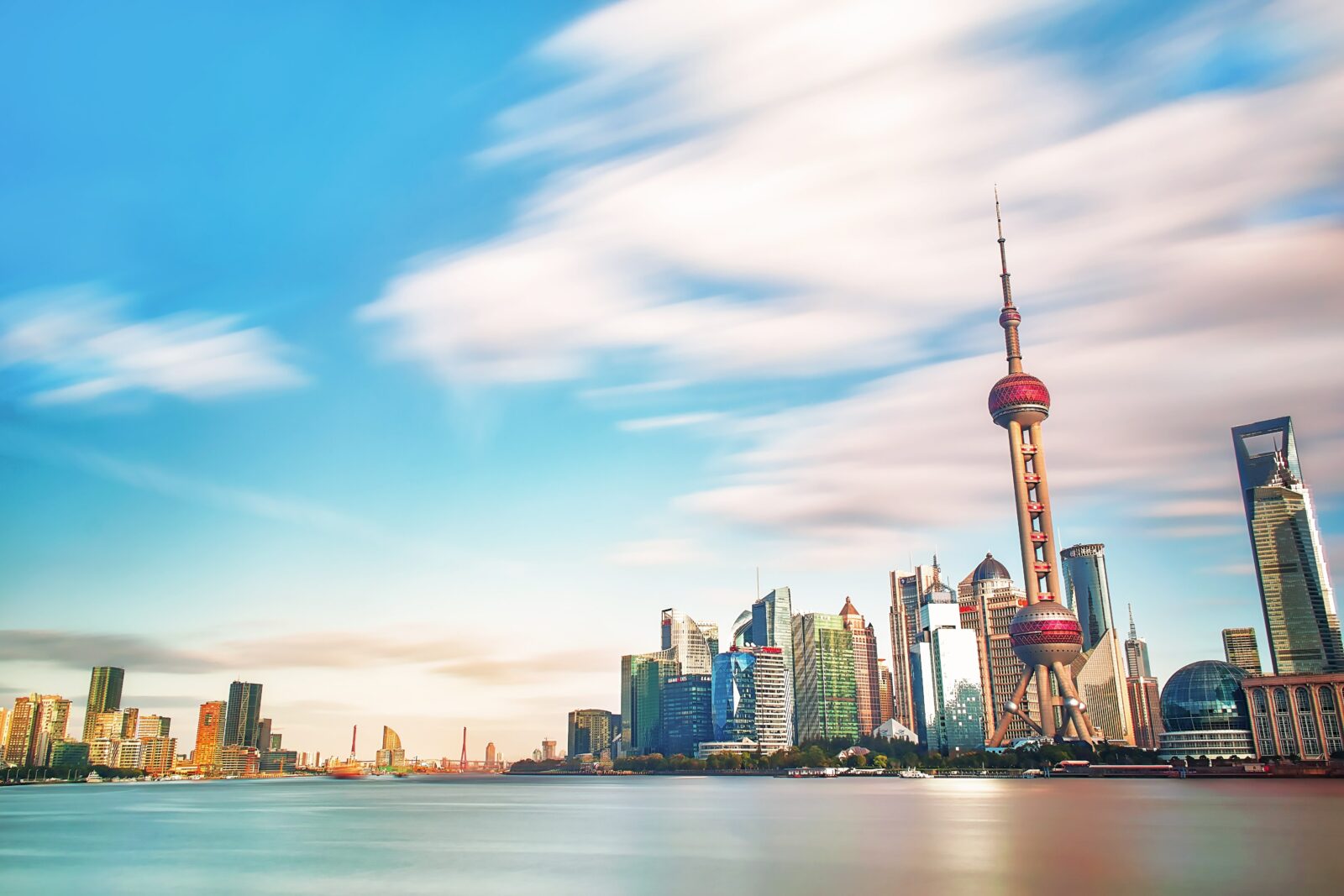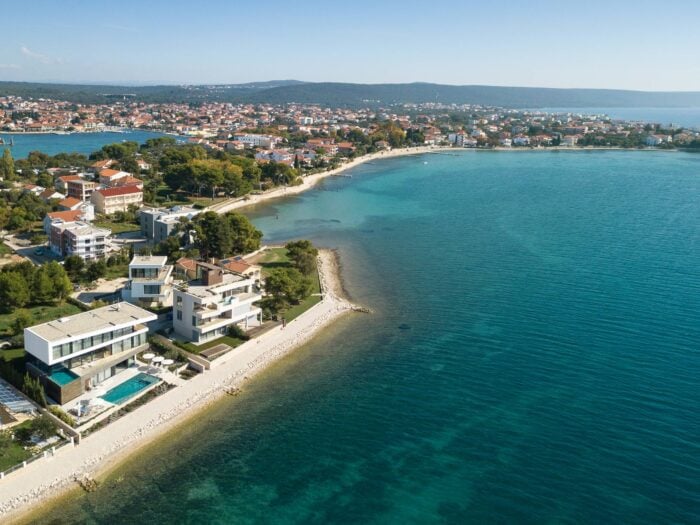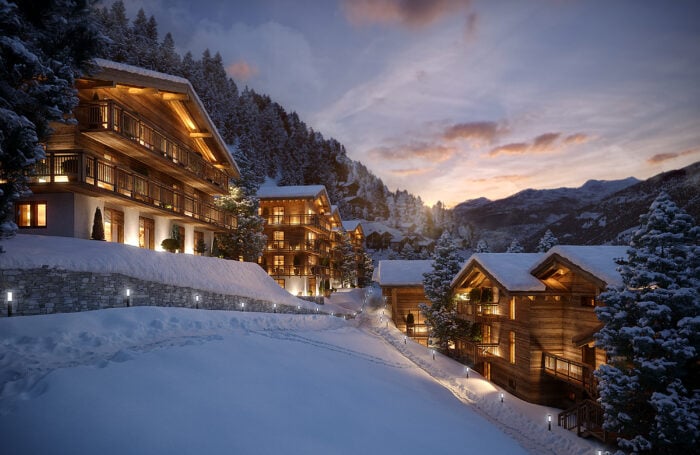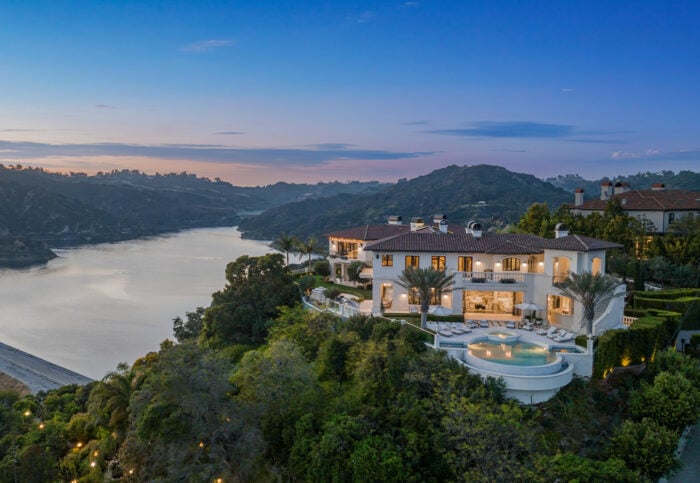China Evergrande Group’s debt problems not only endanger China’s real estate industry and the global market. Its financial struggles may also affect the luxury property sector.
The U.S. Congressional Research Service reported that the embattled property developer owes around US $305 billion in debt—equal to 2% of China’s gross domestic product—as of October 2021.
The company’s liquidity crisis also induced an unwanted flashback of the Lehman Brothers’ 2008 bankruptcy case, in what many believed to be a precursor of the Global Financial Crisis.
How would the loan obligations of the property developer, commonly known as Evergrande, put the global luxury real estate sector at risk? The answer depends on your investment exposure in key markets.
Asia-Pacific Luxury Markets
Evergrande’s aggressive expansion in China partly caused the conglomerate to accumulate more debt than it can pay off. The property developer’s liquidity crisis might also be a significant reason for delayed project completions.
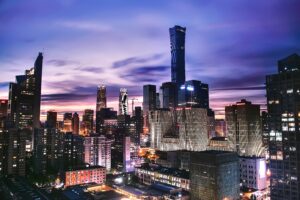
Evergrande’s aggressive expansion in China partly caused the conglomerate to accumulate more debt than it can pay off.
According to a 2021 Interim Report, Evergrande’s unaudited current assets included almost RMB 1.279 trillion (US $200 billion) of “properties under development.” The figure contrasted its “completed properties for sale,” which only amounted to RMB 144.51 billion (US $22.61 billion).
The delayed projects may not just comprise high-end properties in China, but the stark difference between ongoing and completed developments indicates a cash crunch.
Next to China, Australia could be the most vulnerable market in the Asia-Pacific region. There’s no known record of Evergrande’s presence in Southeast Asia’s property market. Evergrande chairman Xu Jiayin, however, has been rumored to be interested in Australian luxury properties.
One such example is the Villa del Mare mansion in Sydney. Golden Fast Foods, an Evergrande subsidiary, bought the property in November 2014 for AUD 39 million. It was a short-lived purchase because the Australian Ministry of Treasury ordered the property’s divestment in March 2015.
The ruling occurred after Golden Fast Foods “failed to notify” the Australian Foreign Investment Review Board (FIRB) about the purchase. The ministry said that non-resident foreigners aren’t allowed to acquire established properties as investments or homes. It still begs the question if Evergrande indirectly owns properties in Australia that went off the FIRB’s radar.
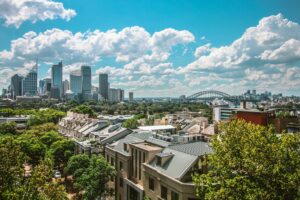
Illegal property purchases in Australia, whether by Evergrande or other foreign entities, likely contribute to higher real estate prices.
Illegal property purchases in Australia, whether by Evergrande or other foreign entities, likely contribute to higher real estate prices. In 2021, the Reserve Bank of Australia (RBA) noted increasing home prices and accelerated borrowing levels.
In other words, many real estate investors wanted to capitalize on potentially higher property prices by taking new loans. If Australian banks also eased lending policies, it would have further incited eagerness among investors. Golden Fast Foods already sold the Sydney mansion, but the RBA still believes that Evergrande may default on its loans.
The assumption comes even after the property developer divested other assets, sold properties at discounted rates, and offered discounted properties to debt holders instead of payments. Evergrande also postponed payments to suppliers and its other liabilities (e.g. wealth management products) to increase cash on hand.
“These steps appear insufficient and Evergrande is widely expected to collapse without some type of government support,” the RBA said in the October 2021 Financial Stability Review.
Ratings actions from agencies such as Fitch Ratings also suggested weaker confidence in Evergrande’s ability to repay its loans. Fitch, along with Moody’s and S&P Global Ratings, downgraded the property developer’s ratings in September 2021 amid increased default risks.
Europe, Middle East And Africa Luxury Markets
Evergrande’s liquidity crisis doesn’t seem to bother investors in Africa and the Middle East. There are two likely reasons: Middle Eastern investors’ bullish sentiment on China and stronger currencies (e.g. South African rand). It’s a different story, though, for European investors.
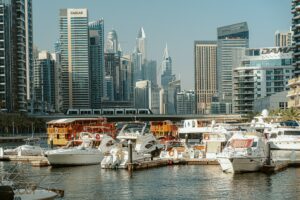
A bullish sentiment on China means Evergrande’s debt woes may have little impact on luxury markets in the Middle East.
Deutsche Marktscreening Agentur (DMSA), a German market screening agency, tagged Evergrande as the “world’s most indebted corporation.” In November 2021, DMSA revealed that Evergrande did default on two bonds’ interest payments in September.
The liquidity crisis could even trigger a “Great Reset” or the so-called “final meltdown” of the global financial system, according to DMSA. The agency has prepared bankruptcy proceedings against Evergrande and has invited other bond investors to join them.
Despite DMSA’s claims, the impact of Evergrande’s debt default on Europe’s luxury property sector may not be exponential. Investors can expect the same scenario in Europe’s financial markets. European Central Bank president Christine Lagarde said in an interview: “Direct exposure would be limited.”
The Americas Luxury Markets
The luxury property markets in South America appear to be indirectly affected by Evergrande’s liquidity crisis. In Brazil, the property developer’s collapse might cause a weaker currency as the country could lose foreign investments.
Gains or losses among Latin American currencies could also happen when there’s movement in basic construction material and metal prices. For example, the Brazilian real traded at approximately 5.6 per US $1 in late November—the supposedly highest growth for 2021.
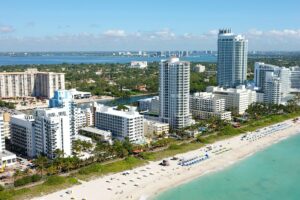
It’s unknown if Evergrande also owns luxury properties in the U.S.’s top luxury markets such as Palm Beach, Florida.
The increase took place after copper and iron ore prices posted gains, which can be attributed to Evergrande’s bond payment in late October. It stoked investors’ optimism of support from the Chinese government. Otherwise, there would be a looming slowdown in construction projects if Evergrande defaults on its loans, ultimately affecting luxury property developments.
Meanwhile, the U.S. Federal Reserve warned that Evergrande’s liquidity crisis could spill over to the U.S. A “sudden correction of real estate prices” could be one of the “possible spillovers.”
Like in Southeast Asia, it’s unknown if Evergrande also owns luxury properties in the U.S. Chinese ownership of U.S. residences fell to 6,300 properties in 2021 from 18,400 properties in 2020. While it’s significantly lower, the combined value of 6,300 properties amounted to US $4.5 billion.
Evergrande, however, does own a luxury resort in Canada. The company bought the 211-room Fairmont Le Château Montebello in December 2014 for an undisclosed sum. It marked the property developer’s first investment in the country.
Whether or not your exposure as an investor remains minimal, Evergrande’s liquidity crisis reminds us of one valuable lesson: no company is too big to fail.
